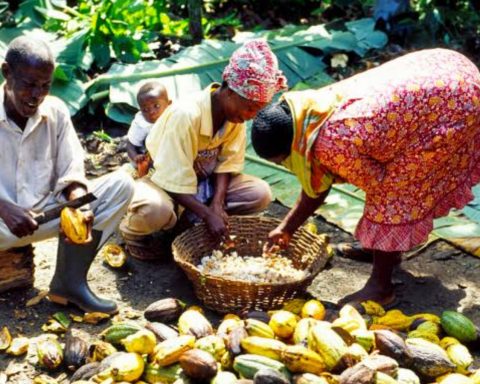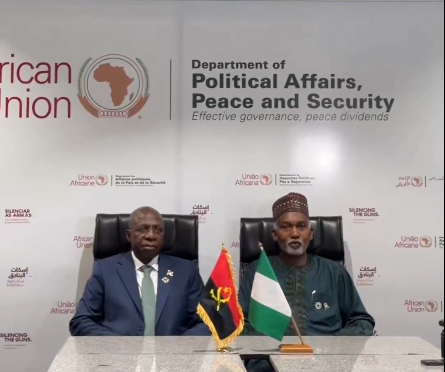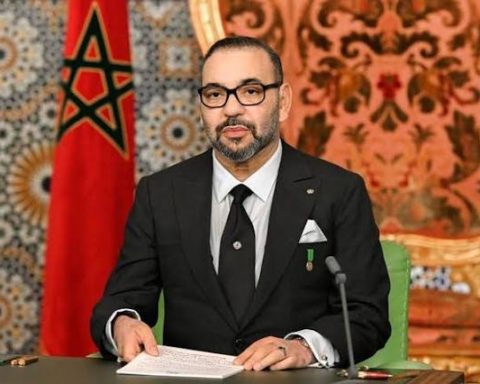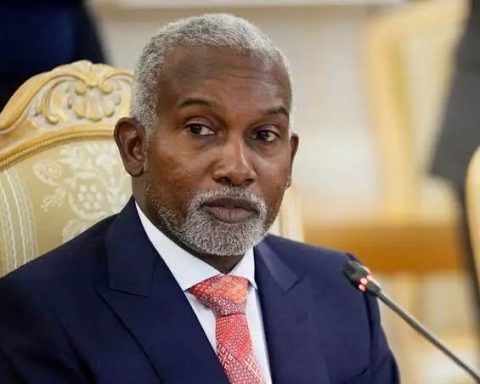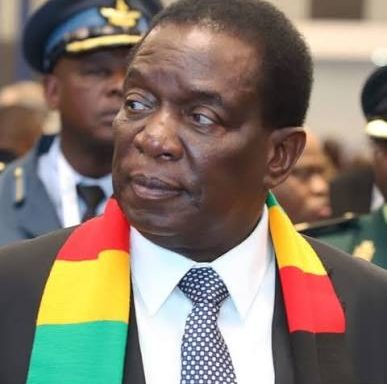Ghana’s plan to revive cocoa production and expand farmland next year is facing pushback from one of the country’s biggest labour bodies, which says the programme will fail unless the government writes off more than GH¢30 billion, about US$2.1 billion, in debts owed by the Ghana Cocoa Board. The Industrial and Commercial Workers Union says the regulator is too financially distressed to support the government’s new targets and must be recapitalised immediately.
At the heart of the dispute is the government’s 2026 Budget Statement, which outlines an ambitious effort to rebuild the sector after years of declines. Finance Minister Cassiel Ato Forson told Parliament that the administration plans to acquire 200,000 hectares of land in 2026 to help push national cocoa output back toward the long-standing goal of one million metric tonnes. He said the government inherited about GH¢32 billion, roughly US$2.3 billion, in cocoa sector liabilities and has begun restructuring them to stabilise the industry.
The ICU says COCOBOD cannot support any expansion until its debt crisis is resolved. General Secretary Morgan Ayawine said the board is operating under severe financial strain and that only a full debt write-off and capital injection can restore its ability to manage Ghana’s most important export crop.
Join our WhatsApp ChannelHe said COCOBOD should not be singled out for blame, arguing that many state-run industries globally are struggling with debts, but insisted the government must act quickly to halt the regulator’s decline.
Ayawine welcomed the land acquisition plan, describing it as bold, but said it risks failing if the institutions responsible for driving production growth remain financially weakened. He warned that early signs of instability are already visible. The Produce Buying Company, a major licensed cocoa buyer, has yet to receive the funding needed for the current main crop season, which began in October. Without purchasing capital, he said, farmers may face delays in payment, and the supply chain could be disrupted.
Ghana is widely recognised as the world’s second-largest cocoa producer and typically supplies about a quarter of global cocoa beans in a good production year. The sector supports more than 800,000 smallholder farming households and accounts for a significant portion of the country’s foreign exchange earnings, making the financial position of COCOBOD crucial for national revenues.
Much of COCOBOD’s debt stems from its cocoa roads programme, through which the regulator issued large construction contracts in recent years. The finance minister told Parliament that outstanding cocoa road obligations alone reached about GH¢21 billion, though only part of that amount had been properly accounted for. He said ongoing audits and repayments have reduced COCOBOD’s overall liabilities from GH¢32 billion in early 2025 to GH¢20.6 billion by September.
READ ALSO: Cocoa, Fertiliser Rank Top As Nigeria’s Non-oil Exports Hit $3.2bn In H1 2025
Beyond cocoa, the ICU urged the government to extend similar financial support to distressed institutions across other sectors. It welcomed the full recapitalization of the National Investment Bank after the decision to halt its planned merger with the Agricultural Development Bank, but said other banks remain at risk.
Ayawine also questioned the government’s target to create 20,000 jobs in the textiles and garments industry, noting that only a handful of factories remain operational from what used to be about 40 companies. He said reviving existing factories should take precedence over establishing new ones.
The union says the government must focus on stabilising critical state agencies before launching new expansion programmes. Without resolving COCOBOD’s debt crisis, it warns, the country’s flagship cocoa recovery plan may fall short before it begins.

John Adoyi, PBA Journalism Mentee
- John Adoyi, PBA Journalism Mentee
- John Adoyi, PBA Journalism Mentee
- John Adoyi, PBA Journalism Mentee
- John Adoyi, PBA Journalism Mentee
- John Adoyi, PBA Journalism Mentee
- John Adoyi, PBA Journalism Mentee
- John Adoyi, PBA Journalism Mentee
- John Adoyi, PBA Journalism Mentee
- John Adoyi, PBA Journalism Mentee
- John Adoyi, PBA Journalism Mentee
- John Adoyi, PBA Journalism Mentee
- John Adoyi, PBA Journalism Mentee
- John Adoyi, PBA Journalism Mentee
- John Adoyi, PBA Journalism Mentee
- John Adoyi, PBA Journalism Mentee
- John Adoyi, PBA Journalism Mentee
- John Adoyi, PBA Journalism Mentee
- John Adoyi, PBA Journalism Mentee
- John Adoyi, PBA Journalism Mentee
- John Adoyi, PBA Journalism Mentee
- John Adoyi, PBA Journalism Mentee
- John Adoyi, PBA Journalism Mentee
- John Adoyi, PBA Journalism Mentee
- John Adoyi, PBA Journalism Mentee
- John Adoyi, PBA Journalism Mentee
- John Adoyi, PBA Journalism Mentee
- John Adoyi, PBA Journalism Mentee
- John Adoyi, PBA Journalism Mentee
- John Adoyi, PBA Journalism Mentee
- John Adoyi, PBA Journalism Mentee
- John Adoyi, PBA Journalism Mentee
- John Adoyi, PBA Journalism Mentee
- John Adoyi, PBA Journalism Mentee
- John Adoyi, PBA Journalism Mentee
- John Adoyi, PBA Journalism Mentee
- John Adoyi, PBA Journalism Mentee
- John Adoyi, PBA Journalism Mentee
- John Adoyi, PBA Journalism Mentee
- John Adoyi, PBA Journalism Mentee
- John Adoyi, PBA Journalism Mentee
- John Adoyi, PBA Journalism Mentee
- John Adoyi, PBA Journalism Mentee
- John Adoyi, PBA Journalism Mentee
- John Adoyi, PBA Journalism Mentee
- John Adoyi, PBA Journalism Mentee
- John Adoyi, PBA Journalism Mentee
- John Adoyi, PBA Journalism Mentee
- John Adoyi, PBA Journalism Mentee
- John Adoyi, PBA Journalism Mentee
- John Adoyi, PBA Journalism Mentee
- John Adoyi, PBA Journalism Mentee
- John Adoyi, PBA Journalism Mentee
- John Adoyi, PBA Journalism Mentee
- John Adoyi, PBA Journalism Mentee
- John Adoyi, PBA Journalism Mentee
- John Adoyi, PBA Journalism Mentee
- John Adoyi, PBA Journalism Mentee
- John Adoyi, PBA Journalism Mentee
- John Adoyi, PBA Journalism Mentee
- John Adoyi, PBA Journalism Mentee
- John Adoyi, PBA Journalism Mentee
- John Adoyi, PBA Journalism Mentee
- John Adoyi, PBA Journalism Mentee
- John Adoyi, PBA Journalism Mentee
- John Adoyi, PBA Journalism Mentee
- John Adoyi, PBA Journalism Mentee
- John Adoyi, PBA Journalism Mentee
- John Adoyi, PBA Journalism Mentee
- John Adoyi, PBA Journalism Mentee
- John Adoyi, PBA Journalism Mentee
- John Adoyi, PBA Journalism Mentee
- John Adoyi, PBA Journalism Mentee
- John Adoyi, PBA Journalism Mentee
- John Adoyi, PBA Journalism Mentee
- John Adoyi, PBA Journalism Mentee
- John Adoyi, PBA Journalism Mentee
- John Adoyi, PBA Journalism Mentee
- John Adoyi, PBA Journalism Mentee
- John Adoyi, PBA Journalism Mentee
- John Adoyi, PBA Journalism Mentee
- John Adoyi, PBA Journalism Mentee
- John Adoyi, PBA Journalism Mentee
- John Adoyi, PBA Journalism Mentee
- John Adoyi, PBA Journalism Mentee
- John Adoyi, PBA Journalism Mentee
- John Adoyi, PBA Journalism Mentee
- John Adoyi, PBA Journalism Mentee
- John Adoyi, PBA Journalism Mentee
- John Adoyi, PBA Journalism Mentee
- John Adoyi, PBA Journalism Mentee
- John Adoyi, PBA Journalism Mentee
- John Adoyi, PBA Journalism Mentee
- John Adoyi, PBA Journalism Mentee
- John Adoyi, PBA Journalism Mentee
- John Adoyi, PBA Journalism Mentee
- John Adoyi, PBA Journalism Mentee
- John Adoyi, PBA Journalism Mentee
- John Adoyi, PBA Journalism Mentee
- John Adoyi, PBA Journalism Mentee
- John Adoyi, PBA Journalism Mentee
- John Adoyi, PBA Journalism Mentee
- John Adoyi, PBA Journalism Mentee
- John Adoyi, PBA Journalism Mentee
- John Adoyi, PBA Journalism Mentee
- John Adoyi, PBA Journalism Mentee
- John Adoyi, PBA Journalism Mentee
- John Adoyi, PBA Journalism Mentee
- John Adoyi, PBA Journalism Mentee
- John Adoyi, PBA Journalism Mentee
- John Adoyi, PBA Journalism Mentee
- John Adoyi, PBA Journalism Mentee
- John Adoyi, PBA Journalism Mentee
- John Adoyi, PBA Journalism Mentee
- John Adoyi, PBA Journalism Mentee
- John Adoyi, PBA Journalism Mentee
- John Adoyi, PBA Journalism Mentee
- John Adoyi, PBA Journalism Mentee
- John Adoyi, PBA Journalism Mentee
- John Adoyi, PBA Journalism Mentee
- John Adoyi, PBA Journalism Mentee
- John Adoyi, PBA Journalism Mentee
- John Adoyi, PBA Journalism Mentee
- John Adoyi, PBA Journalism Mentee
- John Adoyi, PBA Journalism Mentee
- John Adoyi, PBA Journalism Mentee
- John Adoyi, PBA Journalism Mentee
- John Adoyi, PBA Journalism Mentee
- John Adoyi, PBA Journalism Mentee
- John Adoyi, PBA Journalism Mentee
- John Adoyi, PBA Journalism Mentee
- John Adoyi, PBA Journalism Mentee
- John Adoyi, PBA Journalism Mentee
- John Adoyi, PBA Journalism Mentee
- John Adoyi, PBA Journalism Mentee
- John Adoyi, PBA Journalism Mentee
- John Adoyi, PBA Journalism Mentee
- John Adoyi, PBA Journalism Mentee
- John Adoyi, PBA Journalism Mentee
- John Adoyi, PBA Journalism Mentee
- John Adoyi, PBA Journalism Mentee
- John Adoyi, PBA Journalism Mentee
- John Adoyi, PBA Journalism Mentee
- John Adoyi, PBA Journalism Mentee
- John Adoyi, PBA Journalism Mentee
- John Adoyi, PBA Journalism Mentee
- John Adoyi, PBA Journalism Mentee
- John Adoyi, PBA Journalism Mentee
- John Adoyi, PBA Journalism Mentee
- John Adoyi, PBA Journalism Mentee
- John Adoyi, PBA Journalism Mentee
- John Adoyi, PBA Journalism Mentee
- John Adoyi, PBA Journalism Mentee
- John Adoyi, PBA Journalism Mentee
- John Adoyi, PBA Journalism Mentee
- John Adoyi, PBA Journalism Mentee
- John Adoyi, PBA Journalism Mentee
- John Adoyi, PBA Journalism Mentee
- John Adoyi, PBA Journalism Mentee
- John Adoyi, PBA Journalism Mentee
- John Adoyi, PBA Journalism Mentee
- John Adoyi, PBA Journalism Mentee
- John Adoyi, PBA Journalism Mentee
- John Adoyi, PBA Journalism Mentee
- John Adoyi, PBA Journalism Mentee
- John Adoyi, PBA Journalism Mentee
- John Adoyi, PBA Journalism Mentee
- John Adoyi, PBA Journalism Mentee
- John Adoyi, PBA Journalism Mentee
- John Adoyi, PBA Journalism Mentee
- John Adoyi, PBA Journalism Mentee
- John Adoyi, PBA Journalism Mentee
- John Adoyi, PBA Journalism Mentee
- John Adoyi, PBA Journalism Mentee
- John Adoyi, PBA Journalism Mentee
- John Adoyi, PBA Journalism Mentee
- John Adoyi, PBA Journalism Mentee
- John Adoyi, PBA Journalism Mentee
- John Adoyi, PBA Journalism Mentee
- John Adoyi, PBA Journalism Mentee
- John Adoyi, PBA Journalism Mentee
- John Adoyi, PBA Journalism Mentee
- John Adoyi, PBA Journalism Mentee
- John Adoyi, PBA Journalism Mentee
- John Adoyi, PBA Journalism Mentee
- John Adoyi, PBA Journalism Mentee
- John Adoyi, PBA Journalism Mentee
- John Adoyi, PBA Journalism Mentee
- John Adoyi, PBA Journalism Mentee
- John Adoyi, PBA Journalism Mentee
- John Adoyi, PBA Journalism Mentee
- John Adoyi, PBA Journalism Mentee
- John Adoyi, PBA Journalism Mentee
- John Adoyi, PBA Journalism Mentee
- John Adoyi, PBA Journalism Mentee
- John Adoyi, PBA Journalism Mentee
- John Adoyi, PBA Journalism Mentee
- John Adoyi, PBA Journalism Mentee
- John Adoyi, PBA Journalism Mentee
- John Adoyi, PBA Journalism Mentee
- John Adoyi, PBA Journalism Mentee
- John Adoyi, PBA Journalism Mentee
- John Adoyi, PBA Journalism Mentee
- John Adoyi, PBA Journalism Mentee
- John Adoyi, PBA Journalism Mentee
- John Adoyi, PBA Journalism Mentee
- John Adoyi, PBA Journalism Mentee
- John Adoyi, PBA Journalism Mentee
- John Adoyi, PBA Journalism Mentee
- John Adoyi, PBA Journalism Mentee
- John Adoyi, PBA Journalism Mentee
- John Adoyi, PBA Journalism Mentee
- John Adoyi, PBA Journalism Mentee
- John Adoyi, PBA Journalism Mentee
- John Adoyi, PBA Journalism Mentee
- John Adoyi, PBA Journalism Mentee
- John Adoyi, PBA Journalism Mentee
- John Adoyi, PBA Journalism Mentee
- John Adoyi, PBA Journalism Mentee
- John Adoyi, PBA Journalism Mentee
- John Adoyi, PBA Journalism Mentee
- John Adoyi, PBA Journalism Mentee
- John Adoyi, PBA Journalism Mentee
- John Adoyi, PBA Journalism Mentee
- John Adoyi, PBA Journalism Mentee
- John Adoyi, PBA Journalism Mentee
- John Adoyi, PBA Journalism Mentee
- John Adoyi, PBA Journalism Mentee
- John Adoyi, PBA Journalism Mentee
- John Adoyi, PBA Journalism Mentee
- John Adoyi, PBA Journalism Mentee
- John Adoyi, PBA Journalism Mentee
- John Adoyi, PBA Journalism Mentee
- John Adoyi, PBA Journalism Mentee
- John Adoyi, PBA Journalism Mentee
- John Adoyi, PBA Journalism Mentee
- John Adoyi, PBA Journalism Mentee
- John Adoyi, PBA Journalism Mentee
- John Adoyi, PBA Journalism Mentee
- John Adoyi, PBA Journalism Mentee
- John Adoyi, PBA Journalism Mentee
- John Adoyi, PBA Journalism Mentee
- John Adoyi, PBA Journalism Mentee
- John Adoyi, PBA Journalism Mentee
- John Adoyi, PBA Journalism Mentee
- John Adoyi, PBA Journalism Mentee
- John Adoyi, PBA Journalism Mentee
- John Adoyi, PBA Journalism Mentee
- John Adoyi, PBA Journalism Mentee
- John Adoyi, PBA Journalism Mentee
- John Adoyi, PBA Journalism Mentee
- John Adoyi, PBA Journalism Mentee
- John Adoyi, PBA Journalism Mentee
- John Adoyi, PBA Journalism Mentee
- John Adoyi, PBA Journalism Mentee
- John Adoyi, PBA Journalism Mentee
- John Adoyi, PBA Journalism Mentee
- John Adoyi, PBA Journalism Mentee
- John Adoyi, PBA Journalism Mentee
- John Adoyi, PBA Journalism Mentee
- John Adoyi, PBA Journalism Mentee
- John Adoyi, PBA Journalism Mentee
- John Adoyi, PBA Journalism Mentee
- John Adoyi, PBA Journalism Mentee
- John Adoyi, PBA Journalism Mentee
- John Adoyi, PBA Journalism Mentee




